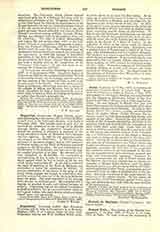

Durand Ursin, a Benedictine of the Maurist Congregation, b. May 20, 1682, at Tours; d. August 31, 1771, at Paris. He took vows in the monastery of Marmoutier at the age of nineteen and devoted himself especially to the study of diplomatics. In April, 1709, he joined his confrere Edmond Martene, who was making a literary tour through France with the purpose of collecting material for a new edition of “Gallia Christiana” (q.v.). After searching the archives of more than eight hundred abbeys and one hundred cathedral churches, they returned in 1713 to the monastery of St-Germain-des-Pres, laden with all kinds of valuable historical documents, many of which were included in “Gallia Christiana“, while the others were published in a separate work, entitled “Thesaurus novus Anecdotorum” (5 vols. folio, Paris, 1717). In 1718 the two Maurists started on a new literary tour through Germany and the Netherlands to collect material for Bouquet’s “Rerum Gallicarum et Francicarum Scriptores”. Besides collecting valuable material for Bouquet’s work they gathered an immense mass of other historical documents which they published in a large work entitled “Veterum scriptorum et monumentorum historicorum, dogmaticorum et moralium amplissima collectio” (9 vols. fol., Paris, 1724-33). They also jointly published in French a learned account of their journeys: “Voyage litteraire de deux Religieux Benedictins de la Congregation de St. Maur” (2 vols., Paris, 1717 and 1724). In addition to the works which Durand published jointly with Martene, he also collaborated with Dantine and Clemencet in a French work on diplomatics, entitled “L’Art de verifier les dates”, continued Coustant’s “Collection of Papal Letters”, assisted Sabatier with the edition of the “Itala”, and contributed to many other Maurist publications. In 1734 he was banished from the monastery of St-Germain-des-Pres as a Jansenist “Appellant”, at the instance of Cardinal de Bissy. He was sent to the monastery of St-Eloi in Noyon. After two years he was permitted to repair to the monastery of Blancsmanteaux in Paris; where he spent the remainder of his life in literary pursuits.
MICHAEL OTT

